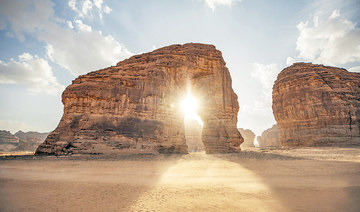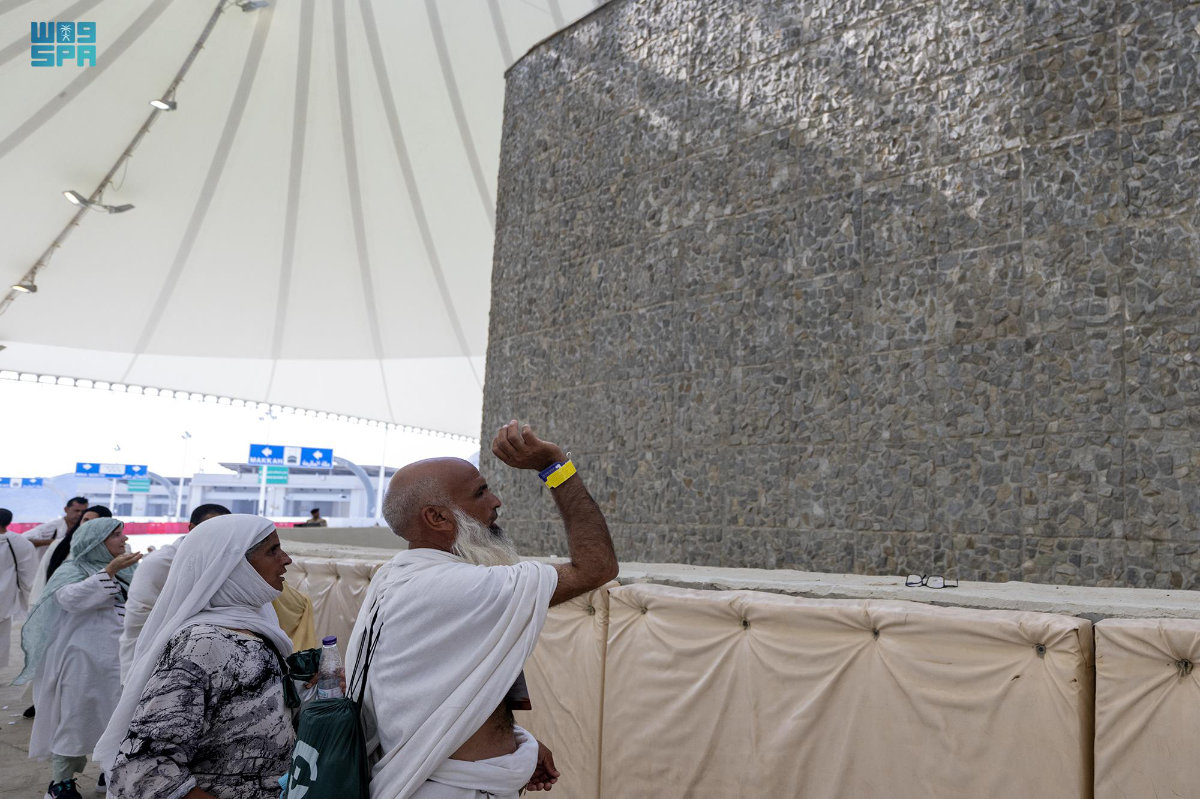RIYADH: Life has changed dramatically since the coronavirus pandemic hit Saudi Arabia.
Face masks and other personal protective equipment have become commonplace, daily tasks such as grocery shopping have become more hazardous, and terms like “social distancing” and “quarantine” have found their way into everyday vocabulary.
But life has continued in one way or another and even a global pandemic cannot stand in the way of true love because, despite the obvious challenges presented by preventive measures, Saudi couples have beaten the odds to find wedded bliss.
Jeddah-based wedding planner Rajaa Zagzoog said that the number of weddings she organized during the pandemic did not decrease. Instead, they went up.
“We actually had more weddings than we’re used to normally,” she told Arab News. “Those who had decided to postpone their weddings during lockdown approached us as soon as it was over to plan. Numbers were especially high during the mid-year school vacation, we had back-to-back weddings then.”
Zagzoog started planning home weddings as soon as the first lockdown ended and when ballroom weddings with up to 50 guests were allowed again, she started doing those too.
“However, the majority of weddings we’ve done during the pandemic have been at home.”
Home weddings were popular last year due to their intimate nature along with the relative ease of planning and the safety of conducting an event in one’s own space.
And, with wedding costs climbing and people’s finances still reeling from the effects of the pandemic, some Saudi couples have taken advantage of the situation to downsize their weddings and hold their celebrations at home with fewer guests.
One such person is Layla M, who got married at home last year with only her family and her husband’s family present, along with a few of her closest friends.
“Nobody can guarantee what is going to happen tomorrow, and never has that been truer than it is today,” she said. “If this virus ends up killing us all, at least I can say I got to marry the love of my life and spend a little time with him.”
But Zagzoog said that, contrary to popular belief, a home wedding was not necessarily cheaper than a ballroom one.
“The numbers weren’t as low as you’d expect. They depended on what we had planned for the wedding in the way of flowers and decorations, the number of guests, and so on.”
Wedding costs in Saudi Arabia vary greatly, but estimates from industry research company IBISWorld put Saudi Arabia’s wedding sector at $550m (roughly SR2.06 billion).
Arabian Business puts the price tag of a Saudi wedding at between $185,000 and $2 million, and reports that around $1 billion is spent every year on wedding jewelry and bridal dresses in Saudi Arabia and other Gulf Cooperation Council countries.
“Some home weddings we planned even surpassed the costs of ballroom weddings,” added Zagzoog. “Even a home wedding can have a high budget depending on the design.”
When it came to the challenges of planning a pandemic wedding, she and her team were able to find ways to spruce up weddings and make both the couple and guests feel special, while also incorporating the necessary safety requirements into the wedding decor.
“We would write the bride and groom’s names on the masks, for example, or offer masks that fit with the theme colors of the wedding, or if the couple had a logo or a monogram, we would put those on the masks, or on the bottles of sanitizer, or go with something floral, for example.”
All in all the pandemic had put the importance of weddings into perspective for many of her clients, and she had noticed a definite change in the way weddings were now viewed.
“Since the pandemic began, people have really started looking at weddings differently. They’ve started focusing on the true reason behind a wedding - to be happy. Getting to wear a nice dress, not needing to be nervous all the time, just enjoying spending the day with family and loved ones. It’s much more intimate and cozier and, in my opinion, much nicer than before.”
But some Saudi brides are choosing to bide their time, hoping to be able to have their dream weddings in peace once things are calm again.
Raghad Abdulaziz, who is 23, got engaged just before the lockdown began last March. She steadfastly refused to get married during the pandemic, holding on to the hopes of having the elaborate and opulent ceremony of her dreams.
“Like almost every other girl, I’ve been dreaming of my wedding since I was just a kid,” she told Arab News. “I’ve had most of the details worked out since I was a teenager. The color scheme, the style of my dress, the wedding cake, everything. I’ve always wanted it to be a big affair. I can’t let go of that dream.”
Abdulaziz said that, as an only child, she wanted to give her mother the chance to celebrate her wedding properly as both mother and daughter had their hearts set on a fabulous fete to send her off to her new home in style.
“If the pandemic lasts for much longer, I will probably concede at some point. But for now, both my mother, my fiance, and myself are all in agreement to postpone for a little longer. I'm not in that big of a rush, for now. As long as there's a chance to still have the wedding of my dreams, I'm going to hold out for it.”
Marriage is a family affair and, in some families, is it common to find the groom bearing the cost of the wedding, home and furniture alongside the dowry and honeymoon. With the mandatory cut in the number of wedding guests by authorities, a pandemic wedding is practically a steal for some grooms.
Ahmed Abdulhamid, an engineer from Madinah and soon-to-be groom, came to an agreement with his wife to give up on the prospect of a large wedding in order to save for their dream honeymoon and home.
“It's an insult to the family if you can't pay for a wedding, it's tradition and though it's an expensive one, it's still too much of a burden on a lot of young grooms just starting to find a solid base in their careers and to settle down,” he told Arab News. “My wife is brilliant inside and out and my love for her grew more when we both stood our ground to get married in a small intimate wedding and save on the cost. I want to give her a dream honeymoon that she deserves and a home that we both want to build together, and that is now closer to reality when I was able to save almost 80 percent of the cost. It's what we both want and we've never been happier.”































